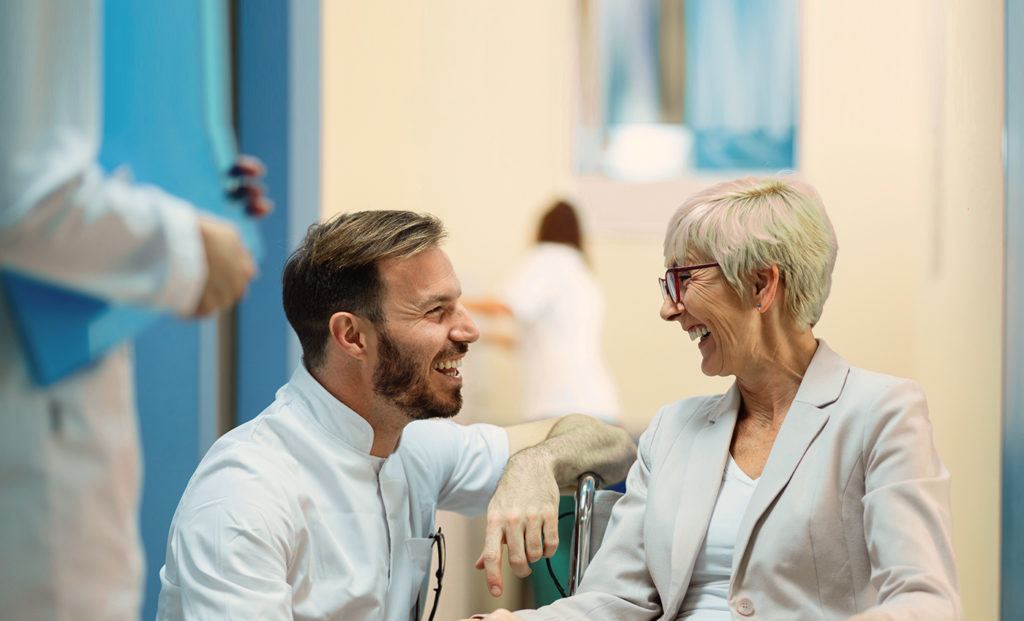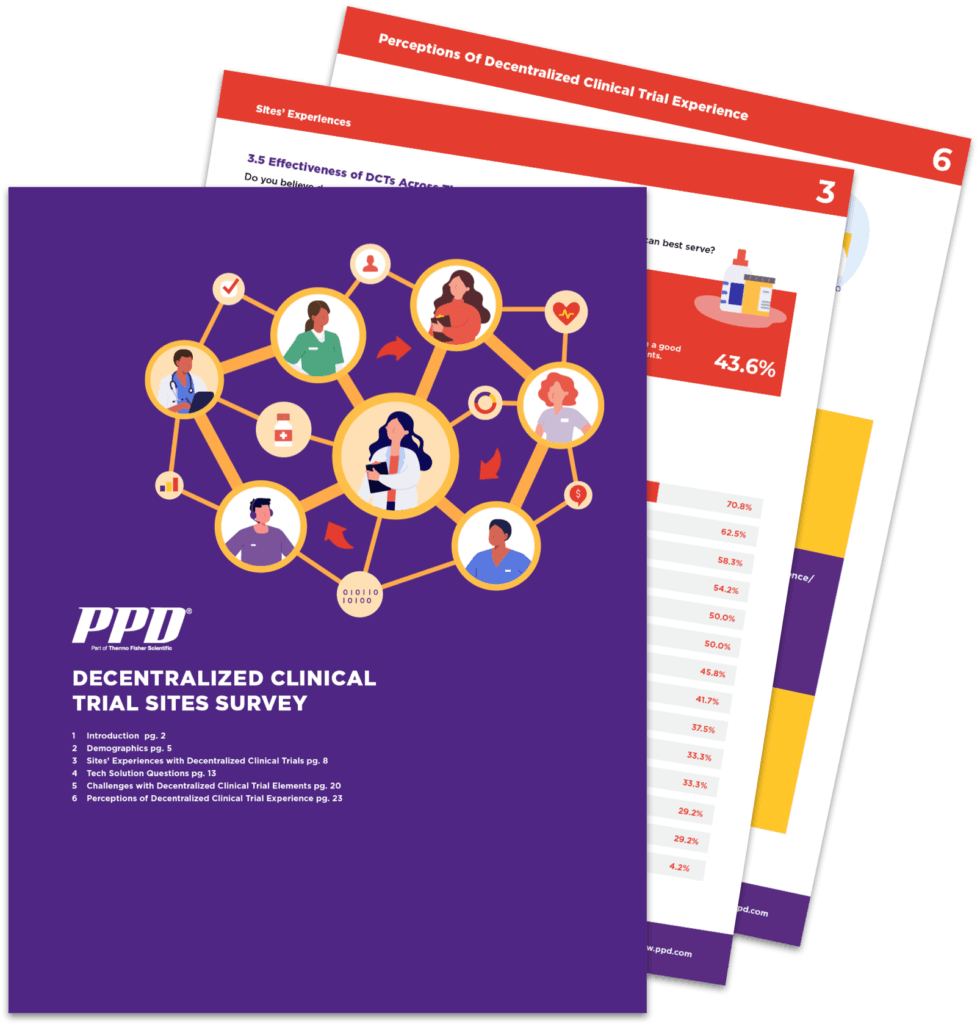
Site and Patient Recruitment Solutions
Innovative site and patient recruitment solutions that center on patients, so you can be centered on success
Finding the right sites and patients for clinical trials is more challenging than ever. That’s why you need a partner who is ready for all phases, delivers a wide range of site and patient recruitment solutions to meet your needs, and has the innovation to maximize your efficiency, engagement and speed to market.
PPD is the leading provider of site and patient recruitment solutions with a proven record to keep patients at the forefront.
Our unique combination of global site locations, patient-centric and digital solutions, and forward-thinking services such as a patient concierge take patient engagement, enrollment, and retention to a whole new level. We can be your single partner that accelerates development through all phases of your clinical trial.
Three considerations when selecting a sites & patients partner
Ensuring patient diversity in clinical trials
Years of proven experience
Recruited studies
Access to more than 130 million patients
High-performing sites across the globe
Maximize your approach to site selection and patient recruitment
Explore challenges, sentiments and keys to success facing research sites and patient recruitment efforts in this new report.
Patient-centric site locations that live where our patients do
Our global portfolio of dedicated, wholly owned sites and strategic site network partnerships span from commercial to community-based, specialized to virtual and early phase I development to post-approval.
More patient and site support
We launched SiteCoach to ensure more patients hear about trials for which they may qualify. Our customized training program is built to support investigators and physician practices that are new to clinical research as they navigate the complexities of patient recruitment and educate patients on their options. We also support sites by crafting patient-friendly literature to facilitate positive discussions between health care providers and their patients about participating in clinical trials.

Recruitment and retention solutions that put the patient first
Our patient recruitment solutions never lose sight of what patients need and what your trial wants to achieve. That’s why we offer recruitment models at global, regional and community-based levels, as well as support services that ensure enrollment goals are hit on time and diverse patients are represented in studies.



